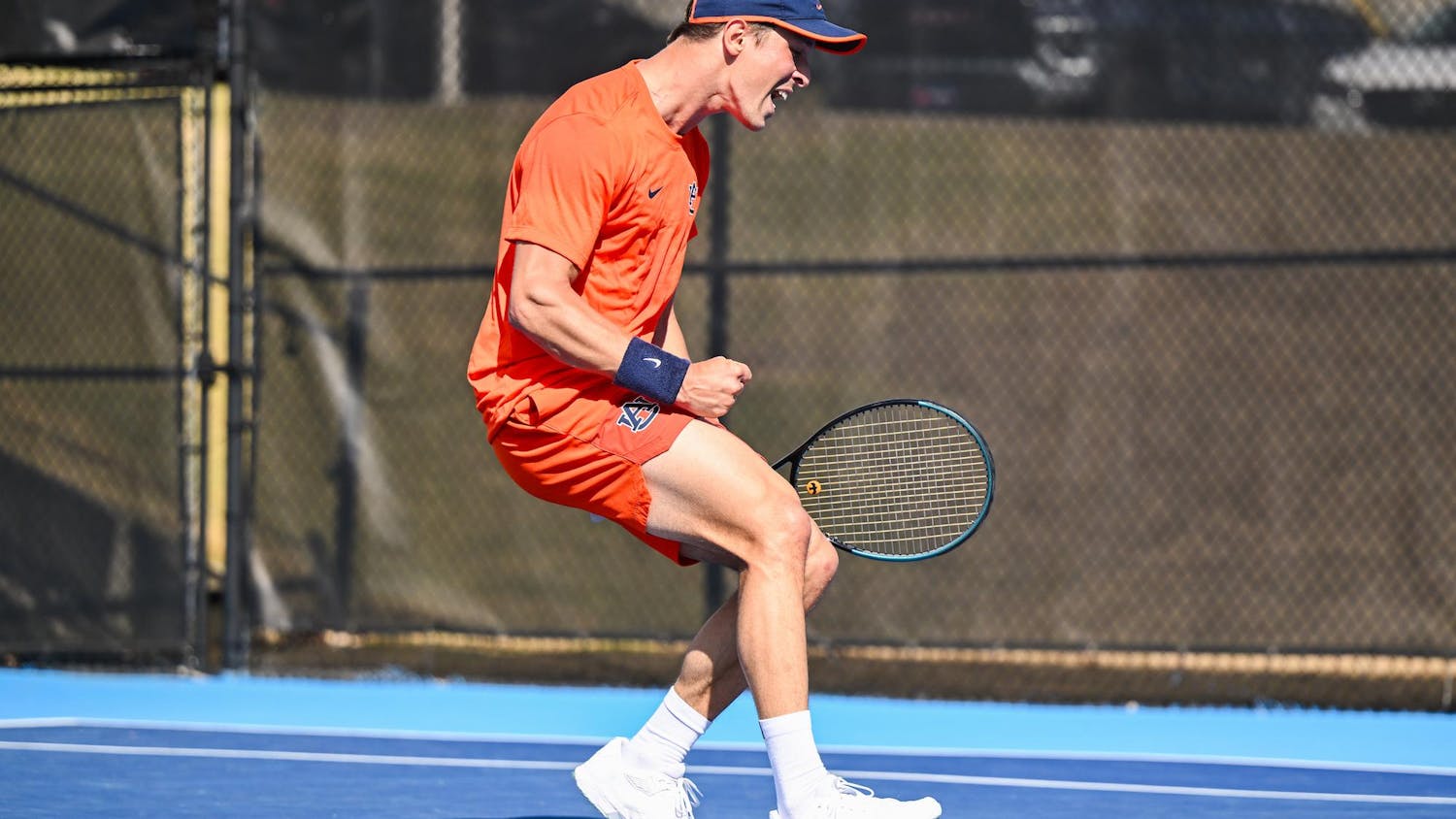Students may want consider thinking outside of the great indoors to gain a competitive edge in the work force.
Picture two different scenarios. The first is two business associates sitting in an office. One person sitting behind a desk leaning forward to show concern for the other's cooperation in a deal, the other person sits across the desk shifting in an uncomfortable chair. The second scenario is out on a court or a golf course hashing out the same details in a deal.
"I don't think you can overstate a way to connect with colleagues outside of the office," Accounting Professor Duane Brandon said. "It's really more than making a business deal, it's the connection. Details of business are worked out on the green."
Stepping outside of the office to talk, whether it's making a business deal or networking, takes the edge off in the conversation. Sports offer a change of scenery and new opportunities for different conversations that would not happen in the office.
"The conversations I have on the green are and should be more social based on the time together spend understanding the person better and gaining insights into both their personal and professional lives," Greg Marshburn, Southeast district manager for F5, said.
Certain sports have been associated with business deals. Stereotypically golf and tennis are the normal venue for business networking.
"Tennis is considered a 'life sport' because unlike football,
basketball, etc. it is a sport which you can play for life with ease and on a cheap budget," tennis course instructor James Snead said.
Golf is also considered a life sport that caters to people of all ages.
"Both sports are good because you can play them into your 80s," Brandon said.
People in the business world lean toward golf and tennis because they also don't require as much physical effort as other sports.
"They are not sports that it is imperative to be in great physical shape such as running, swimming, etc.," Marshburn said. "They both have large times that are spent socializing as much as competing."
Marshburn encourages his daughter, Corey, a senior in communications with a minor in business, to get out on the green with him.
"He thinks it would be a good tool after I graudate," Corey said. "I think it would be good too because not many girls play gold, so I will kind of have one up on the rest."
Apart from the office, the court, course and field offer professional grounds for deals and networking.
"I think people doing business choose sports because it is fun for both parties, and yet it is still more professional than going to the bar or something like that," Corey said.
For students jumping in to the work force after college, sports networking with not just potential clients or partners, but colleagues at the office as well.
"Once you leave college, you'll be working with people of all age ranges," Brandon said. "Having some way to connect with them outside the office is important."
Although most students take tennis courses to fulfill their course requirements, Brandon said he's had some students take the class to get an edge.
"A few (students) have expressed their desire to learn so that they do not feel 'left out' when they are the unable to join in a friendly match while in the workforce," Brandon said.
The competitive side of sports doesn't hurt camaraderie in any profession.
"Sports teach people to compete, so it is beneficial to all professions as they are all competitive," Greg said.
Once in the job force, games of golf or tennis make relationships. If deals go south and accounts fall through, the time spent talking outside the office could make the difference.
Do you like this story? The Plainsman doesn't accept money from tuition or student fees, and we don't charge a subscription fee. But you can donate to support The Plainsman.




